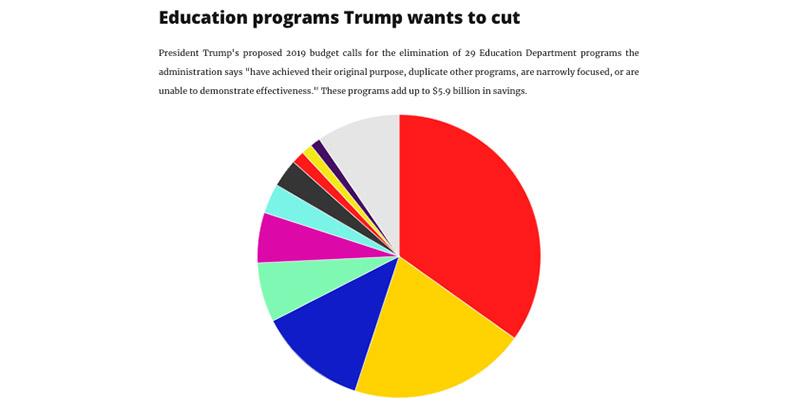Federal Funding Reductions Challenge Trans-Inclusive Education in Major U.S. Cities
Federal Government Cuts Education Budgets Over Transgender-Inclusive Policies
In a recent policy shift, the federal government under the Trump administration has enacted substantial reductions in education funding directed at several large metropolitan school districts, including New York City. These cuts specifically target districts that have adopted transgender-inclusive curricula and policies. The withdrawal of millions of dollars in grants, which previously supported diversity and inclusion initiatives, has sparked widespread concern among educators, advocacy organizations, and local leaders. Many argue that these financial constraints threaten the creation of safe, affirming educational spaces for transgender students and reflect a broader conflict between federal authorities and local governments over LGBTQ+ rights in schools.
Consequences of these funding cuts include:
- Elimination or reduction of mental health programs tailored for transgender youth
- Decreased funding for professional development focused on gender diversity and inclusion
- Potential closure or downsizing of LGBTQ+ resource centers and student support groups
| City | Funding Reduction (in Millions) | Notable Impact |
|---|---|---|
| New York City | $12.5 | Shutdown of five LGBTQ+ safe zones within public schools |
| Chicago | $7.8 | Cancellation of diversity training for over 10,000 educators |
| San Francisco | $5.6 | Reduction in counseling services for transgender students |
New York City Schools Face Funding Shortfalls and Community Resistance
The budget cuts have delivered a significant setback to New York City’s public schools, jeopardizing programs that serve diverse student populations. Educators warn that the loss of millions in federal support will disproportionately impact initiatives aimed at fostering inclusivity and providing mental health resources, particularly for transgender and non-binary students. Parents, students, and community advocates have voiced strong opposition, emphasizing that these reductions threaten years of progress toward establishing safe and welcoming educational environments.
Public forums and community gatherings have seen heightened activism, with stakeholders urging policymakers to reconsider the funding decisions. Beyond immediate financial concerns, many fear these cuts could erode the city’s long-term commitment to educational equity. Advocates highlight several critical issues:
- Decreased availability of counseling and support personnel essential for marginalized students
- Scaling back of inclusive curriculum development that promotes empathy and acceptance
- Potential rise in dropout rates among vulnerable youth due to diminished support systems
| Funding Category | Budget Before Cuts | Budget After Cuts | Estimated Impact |
|---|---|---|---|
| Transgender-Inclusive Programs | $15 million | $8 million | Nearly 47% reduction |
| Mental Health Services | $20 million | $12 million | Significant decrease in counseling availability |
| Inclusion Training for Staff | $5 million | $2 million | Fewer professional development sessions |
Expert Perspectives on the Impact of Education Funding Reductions
Education policy analysts warn that the decision to retract millions in federal funding from cities like New York represents a concerning departure from efforts to ensure equitable educational opportunities. These cuts jeopardize the infrastructure that supports transgender and gender-diverse students, potentially leading to diminished access to counseling, fewer inclusivity programs, and an overall decline in supportive school climates. Experts caution that such measures may deepen existing disparities, adversely affecting both the mental health and academic success of marginalized students.
Key anticipated outcomes identified by specialists include:
- Resource limitations: Schools may struggle to sustain current programs without sufficient funding.
- Heightened discrimination risks: Reduced support can foster unwelcoming or hostile environments for LGBTQ+ youth.
- Widening achievement gaps: Marginalized students face increased obstacles to academic success.
- Economic repercussions: Lower educational attainment can negatively impact workforce readiness and economic growth.
| Area of Impact | Expected Consequence |
|---|---|
| Student Support Services | 30% reduction in counseling availability |
| Inclusivity Programs | 50% decrease in program offerings |
| Academic Outcomes | Increased dropout rates among LGBTQ+ and marginalized students |
| Community Trust | Heightened tensions and diminished confidence in school systems |
Strategies for Schools to Sustain Transgender Support Amid Funding Cuts
In response to federal budget reductions, school districts can implement comprehensive approaches to continue supporting transgender students and uphold inclusive policies. Building robust partnerships with local nonprofits, LGBTQ+ advocacy organizations, and mental health providers can help fill resource gaps. Transparent communication with families and community members is essential to foster understanding and collective commitment to protecting transgender youth despite financial challenges.
Recommended actions for educational institutions include:
- Organizing community-driven fundraising initiatives to offset lost federal funds
- Maintaining prioritized staff training on gender inclusivity, even with limited budgets
- Utilizing online platforms to create virtual safe spaces and peer support networks
- Engaging in advocacy at local and state levels to secure ongoing funding and anti-discrimination protections
| Support Strategy | Primary Benefit | Estimated Cost |
|---|---|---|
| Community Partnership Programs | Expanded access to mental health resources | Low |
| Inclusive Staff Development | Improved school climate and awareness | Moderate |
| Digital Peer Support Networks | Safe and accessible student engagement | Minimal |
| Local and State Advocacy | Strengthened policy protections and funding stability | Variable |
Conclusion: Navigating the Future of Trans-Inclusive Education Funding
The Trump administration’s decision to reduce education funding for cities that implement transgender-inclusive policies marks a pivotal moment in the ongoing national debate over LGBTQ+ rights in schools. While proponents argue these cuts reflect fiscal prudence, opponents warn they threaten the safety and well-being of transgender students and undermine inclusive educational progress. As this controversy unfolds, it raises critical questions about the future direction of education funding priorities and the commitment to fostering equitable, supportive learning environments for all students.













